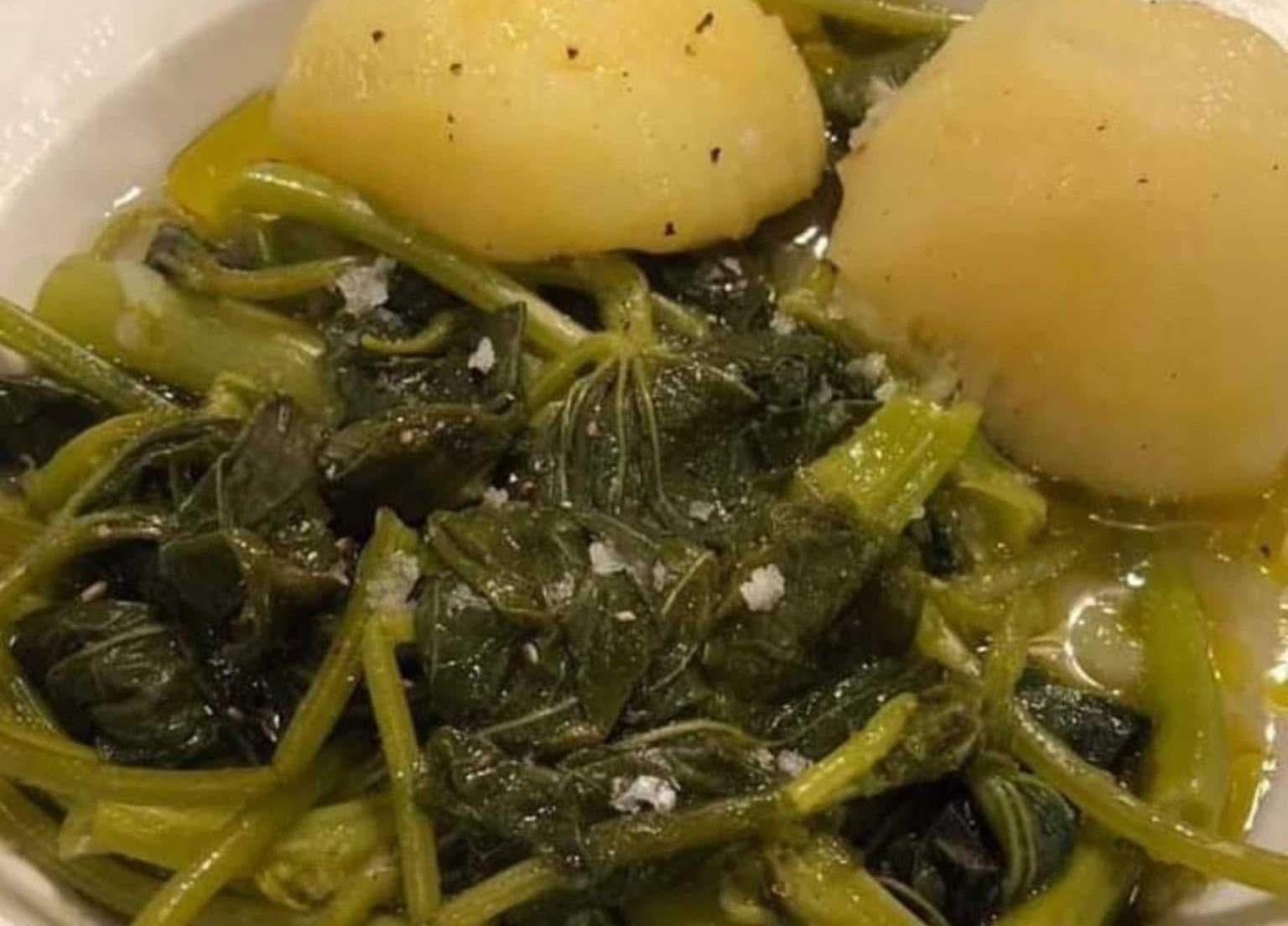With the run-up to Easter now in full swing, people around the island are looking to vegetables to feed themselves
Briam (Roasted Seasonal Vegetables)
Probably one of the best vegetarian recipes that I know, it can be found all over Greece and Cyprus that is a housewife’s favourite, especially when people are fasting. This dish is sometimes cooked in a casserole with chopped tomatoes and tomato puree, and is known by different names including Polipikilo (a mixture of vegetables) and Tourlou (Turkish name and Cypriot).
The nuns of Ayia Paraskevi in Corfu cooked this simple but delicious meal for me while I was filming my TV series Simply Greek there. They used wild oregano that they collected from the surrounding hills and vegetables along with parsley and garlic from their allotment. Use any seasonal vegetables you like to make your Briam; I sometimes make it with just courgettes, potatoes and red onions. It makes an ideal light lunch with a nice salad.
Ingredients (Serves 6)
450g aubergines
450g courgettes
1 green pepper, deseeded
1 red or yellow pepper, deseeded
1lb potatoes, peeled
2 medium onions, sliced
3 cloves garlic, chopped
4 large tomatoes, peeled and chopped or 400g canned tomatoes
4 tbsps chopped parsley
2 tbsps dried oregano
200ml good olive oil
200ml warm water
Salt and freshly ground black pepper
Cut all the vegetables into round thick slices, big wedges or chunks. Place the vegetables and the herbs into an earthenware dish or an oven dish.
Season with salt and pepper, pour on the olive oil and the water and mix everything together to coat all the vegetables with the oil and herbs. (Sometimes I present them in a symmetrical pattern but this is of course optional!)
Bake uncovered in a preheated oven, 190C, for about 1½ hours until the vegetables are tender, stirring from time to time.

Moloshes (Cypriot Boiled Mallow)
Springtime In Cyprus starts early January and lasts through February and March. There is a lot lush vegetation bursting in the countryside. Wild greens are a stable foods and foraging is a widespread activity among the older generation.
I remember as a young girl helping my Yiayia Vasilla collect Molosies (Mallow in UK), the Latin name is malva sylvestris. The Arabic and Egyptian Molohia is from the same family but it’s called Nalta, Jute Mallow or Jew’s Mallow and the leaves are not round but pointed, while they also they have yellow flowers not purple! Incidentally the colour Mauve was adapted by the French from the word Malva!
A few years ago I happened to be in Cyprus in January and the fields were covered with wild greens, the only thing I brought back was Molohes. Molohes are an excellent accompaniment for fish dishes and grilled meats, dressed with virgin olive oil and lemon juice, served with crusty village bread to soak up all the delicious juice.
Serves 4
1.35kg of young green tender moloshes (mallow)
1 tbsp vinegar
2-3 large Cypriot potatoes, peeled, cut into four
Salt
For the dressing
Extra virgin olive oil
Lemon juice
Lemon wedges
Village bread
Trim the vegetables from the roots, removing any hard stems and inedible parts, cut into large pieces and wash well in cold water. I like to soak them in cold water with 1 tablespoon of vinegar for 5 minutes (to remove soil and any insects), wash and drain.
Bring a large saucepan half full of salted water to the boil and add the potatoes, bring back to the boil then cook them for 10 minutes until half cooked, add the mallow leaves making sure the water just covers them and cook on a medium heat with a lid on to retain the colour for about 15 minutes or until fork tender.
Drain, leaving a bit of cooking water and place in individual warm bowls. Serve room temperature, topped with olive oil, lemon juice and salt to taste and accompanied by lemon wedges. Don’t forget the bread!
Loulla’s book My Kosmos My Kitchen can be ordered from www.amazon.com or www.austinmacauley.com/book/my-kosmos-my-kitchen. For more traditional Greek and Cypriot recipes and inspiration, join Loulla’s Facebook group Loulla’s Recipe Share






Click here to change your cookie preferences